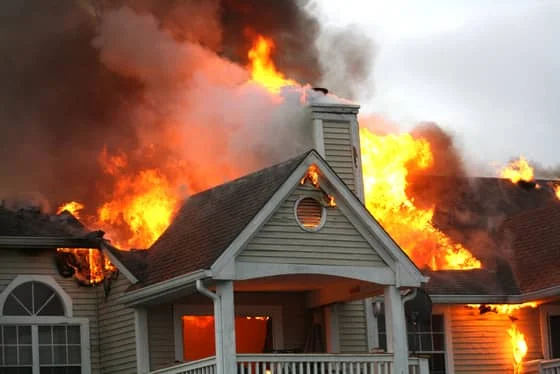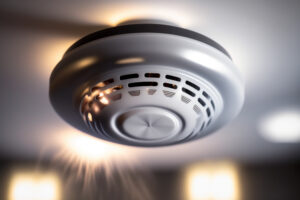As the primary defense against fires in a home, fire alarms play an indispensable role; however, it is important to realize that they have a limited lifespan. This raises the question: do fire alarms expire? Their fundamental purpose is to notify you promptly, allowing for a safe exit, which underscores the importance of knowing when they may no longer perform adequately. This article will examine the expiration of fire alarms, the indicators signaling the need for replacement, and best practices for homeowners to maintain these critical safety devices.
Do Fire Alarms Expire?
Similar to food products, fire alarms come with a defined lifespan that impacts their efficiency. Typically, smoke alarms are effective for a duration of 8 to 10 years. In contrast, carbon monoxide detectors may remain functional for approximately 10 years. Combination alarms, which offer detection for both smoke and carbon monoxide, also usually remain effective for up to 10 years. Several elements contribute to their eventual expiration, including sensor deterioration caused by dust, moisture, and ordinary usage.
Over time, the sensitivity of the sensors in these alarms can diminish, consequently impairing their capability to detect smoke or carbon monoxide effectively. This natural aging process illustrates the need for not depending on fire alarms indefinitely. It is vital to regularly monitor the manufacturing date and comprehend the lifespan of your specific alarm to ensure safety.
Signs It’s Time for a New Fire Alarm
Your fire alarm will frequently provide indications when it is approaching the end of its service life. One of the most notable symptoms of expiration is the tendency to issue false alarms frequently. If your fire alarm activates in the absence of an identifiable trigger, it may be wise to think about replacing it. Conversely, if your smoke alarm does not respond during a safety test or an actual emergency, it is an unequivocal signal of its malfunction.
An additional sign that an alarm may no longer be effective is the presence of physical deterioration, which can manifest as discoloration or cracks within the unit. Such impairments can affect the alarm’s performance, raising the question: do fire alarms expire? Additionally, a regular chirping noise might indicate that the battery is running low. However, should changing the battery fail to eliminate the sound, this could signify a malfunctioning unit. Ignoring these warning signs could lead to dangerous circumstances in which the alarm may not operate when required, underscoring the importance of understanding alarm expiration and maintenance.
Risks of Ignoring Expired Alarms
Overlooking expired fire alarms can markedly increase the likelihood of unobserved fires occurring in your home. An inoperative alarm will not provide timely warnings, which could result in extensive property destruction or even loss of life. The National Fire Protection Association (NFPA) reveals that close to 60% of home fire-related deaths are associated with residences lacking functional smoke alarms. Operational fire alarms are vital for offering early alerts and preserving lives.
Frequent replacement of your fire alarms ensures that they remain operational when it matters most. Allocating resources toward new alarms is a modest cost for safeguarding you and your family members. Statistics illustrate that homes fitted with functional smoke alarms face a 50% lower likelihood of fatalities resulting from fires relative to those without.
Checking Your Fire Alarm’s Status
In order to confirm that your fire alarm is operating effectively, begin by finding the manufacture date, usually printed on the rear of the device. Analyze this date with regards to the alarm’s designated lifespan to determine if replacement is necessary. Moreover, it is important to carry out monthly tests by pressing the test button. Maintain pressure on the button until a loud siren is activated; if there is no sound, this may suggest that the alarm requires new batteries or replacement.
Consistent battery replacement is critical for battery-operated devices. It is suggested that batteries be replaced at least once a year. Hardwired alarms generally feature a backup battery, which should likewise be replaced annually. Moreover, the entire alarm unit should be replaced every 8 to 10 years, depending on the alarm type.
Choosing a New Fire Alarm
When it comes to purchasing a new fire alarm, there are a few variables to consider. First, select the sort of alarm you want: ionization, photoelectric, or dual sensor. Ionization alarms detect burning flames better, whereas photoelectric alarms detect smoldering fires. Dual-sensor alarms offer the benefits of both worlds.
Following this, assess the power source for the alarms. Battery-operated models are simple to install and can be situated in multiple locations, while hardwired alarms require professional installation but deliver improved reliability with an integrated battery backup. Ensure that any alarm you opt for meets local fire safety standards.
Ultimately, consider the advantages of smart alarms and integrated systems. These smart alarms connect to Wi-Fi, permitting notifications to reach your phone and providing greater reassurance during absences from home. Additionally, interconnected systems ensure that if one alarm identifies a concern, every alarm in the household will respond promptly.
Keep Your Family Safe with Up-to-Date Fire Alarms
Maintaining contemporary fire alarms is vital for the safety and security of your household. By keeping track of expiration dates, recognizing failure signs, and acting swiftly, you ensure your alarms are always ready to protect your family. Establishing a routine for checking and replacing alarms, while choosing the right solutions for your home, is crucial. These measures not only protect your home but also preserve its market value, which becomes especially important if you ever face the challenge of selling a fire-damaged house. For thorough guidance, consulting fire safety professionals can provide insights tailored to both safety and property management needs.


